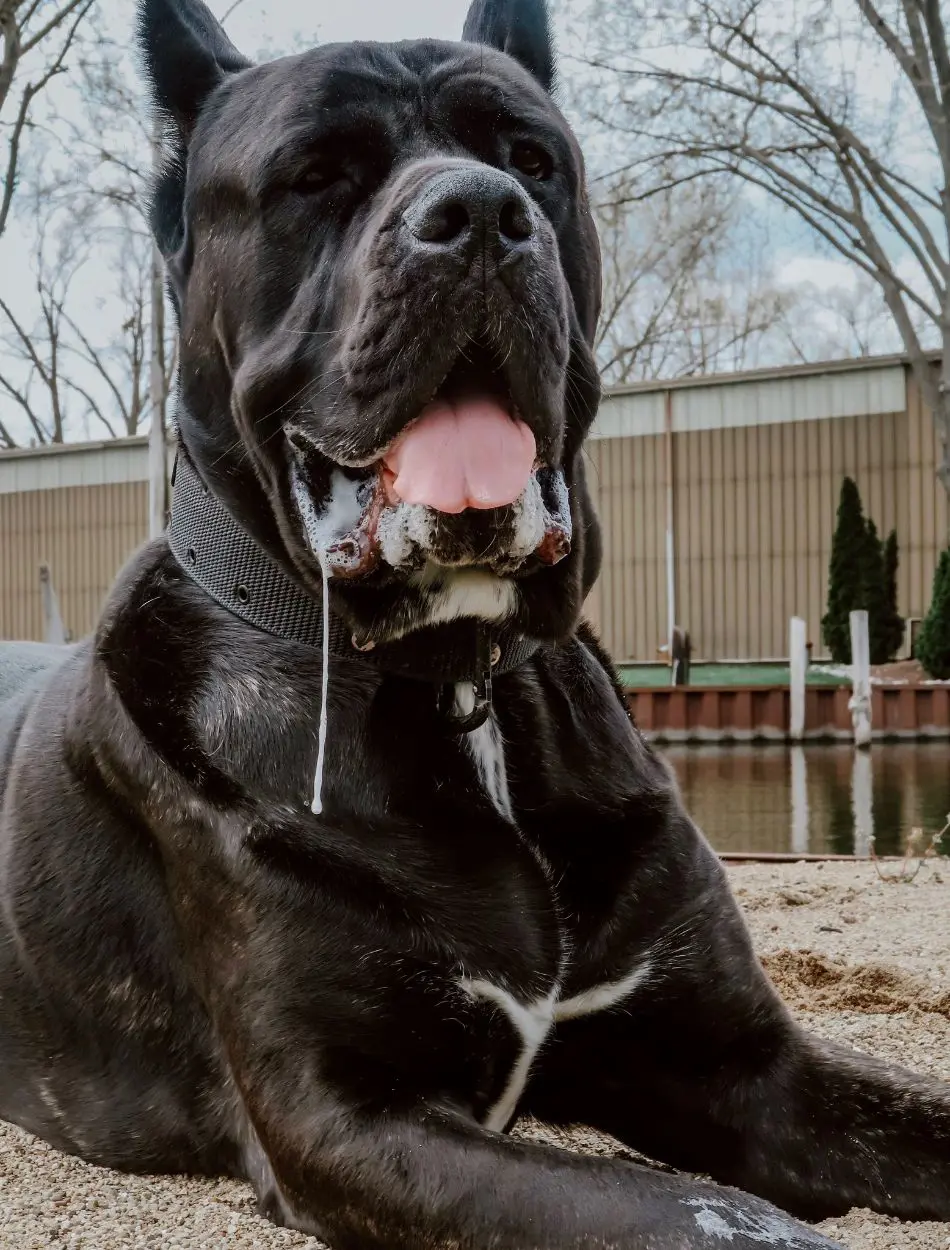18 Signs Of Kidney Disease In Dogs

Kidney disease, technically known as nephropathy is a damage or gradual loss of kidney functions. When your dog's kidney is unable to work properly, it can lead to various serious issues.
This disease can develop in dogs because of their age, genetics, or other reasons. If it is untreated for a long period, it can be life-threatening for your dog so, it is always better to take them for a regular checkup once in a while.
1. Increased Thirst
Increased thirst can be a sign of various diseases in your dog, among which Kidney Disease is also one. When your dogs are suffering, they are unable to filter the urine properly and they also excrete more water. In order to compensate for this reason, their body requires more fluids.
If you notice that your dog is drinking more water than usual, you need to start monitoring their condition and see if they are accompanied by other symptoms. In case you think it can be due to disfunction of their kidneys, it is important to consult with a vet, as soon as possible.
2. Increased Urination
Increased urination, also termed Polyuria, is a situation where your dog's body makes too much urine, making them pee a lot. It is the process of abnormal production of urine due to several health issues.
This can often be an early sign of kidney disease in your dog because when their kidney filters start to damage, they cannot function properly, leading to the urge to urinate more.
If you notice your dog urinating more often despite the amount of water they drink, you should make an appointment with your dog's doctor soon.
3. Decreased Appetite

Dogs love to eat, especially if they are treated to their favorite food, but sometimes your dog may not be in the mood to eat any of them.
It can be one of the signs of this disease because when the dog's kidney is not functioning properly, they build up waste products in the blood which makes them feel nauseous and have no desire to eat. This can also imbalance the acid-based level in their body.
Your dog may not want to eat because they have a bad taste in their mouth or other mouth problems. They may feel a lack of energy and don't want to eat more. So, if your dog is suddenly losing their appetite, this is something you need to be more concerned about.
4. Weight Loss
If your dog is noticeably losing weight, you should be wary because this can be one of the signs. When the dogs are unable to eat properly, lose their appetite, are not in good body condition, and their body is not able to filter the waste properly, they will eventually lose weight.
Weight loss is often due to the combined signs of this problem and their effects on your dog's body. The main reason is if they don't want to eat, they'll automatically lose their weight. Loss of fluid in their body is also a similar case.
If you feel like they are losing weight rapidly, try to adjust diets and supplements in their food, keep them hydrated, monitor their weight regularly, and give them emotional support.
5. Vomiting
When your dog is not feeling good in their stomach, they feel like vomiting. It can be a sign that it may have been caused due to waste buildup, certain medications, and lack of kidney function.
When there is lots of waste and toxins in their body, they will feel uncomfortable. This can also imbalance the acid level in their body which can cause the dogs to vomit.
This can hugely impact the health and life of your dog. If your dogs are vomiting, you can give them medication to control nausea, try dietary adjustments, give them a highly digestible diet, prescription diets, and small, frequent meals, and supplements.
6. Lethargy

Lethargy is the state of tiredness or fatigue in your dogs which may be because of the lack of filtration of wastage in their body. Feeling lazy can also be a sign because when there is a lot of waste and toxins present in their body, they feel tired, weak, and not in their best body condition.
Excess amounts of urination, poor fluid filtration, dehydration, and nutritional deficiencies can also lead to overall weakness and lethargy in the body. Although they rest and sleep properly, they can still feel laziness in them.
If your dog is being lazy, try to engage them in exercises, make them have a good amount of supplements and nutrients, adjust their diet, and if all these don't work, take them for a checkup.
7. Diarrhea
Diarrhea in your dogs can be another sign of this disease which can be more complicated and lead to their overall health condition. It can lead to more loss of fluid from the body, weight loss, and also the ability to absorb the nutrition from the diet.
This can be because of excessive waste in the body, use of different medicines, change in diet, pile up of toxins, stress, etc. If your dog is suffering from a dysfunction of the kidney, they'll also have stress. This can also affect bowel movements, which can cause diarrhea and constipation.
If not managed in time this can affect their lives. To manage this problem, try managing their diets, giving them enough water, and supportive care.
8. Bad Breath
When there is a lot of waste in the body of your dog, they'll eventually have bad breath. Bad Breath, also called Halitosis, is an oral health problem where the mouth smells. This is associated with one of the signs.
If the kidney of your dog is not working properly, they cannot extract waste from their body and the toxins pile up in their system. This causes bad breath and is often called ammonia breath. It can be the result of waste in the blood, urine, etc. They affect gastrointestinal issues which also lead to a bad smell in their breath.
To reduce this, you need to give your dog regular dental care, brush their teeth, give them dental chews and treats, and take the help of professional cleaning. Monitor their condition and do a veterinary visit often with your dog.
9. Ulcers In The Mouth

Mouth ulcers the ulcers in the oral area, are caused due to the imbalance of digestive juices and various other factors in the stomach. This can be a sign of different diseases and health problems.
If the body of your dog is not able to extract the toxins present there, they can lead to mouth ulcers. They are painful sores that make it difficult for them to eat and drink.
The imbalance of the acid in their body, reduced production of saliva, imbalance or lack of calcium, potassium, poor nutrient absorption, etc lead to mouth ulcers.
The most common symptoms are painful mouth, foul breath, red, swollen gums, visible ulcers, etc. If not treated in time, this can result in cancer as well. You need to try consulting with their doctor as soon as possible to understand the underlying cause behind that.
10. Urinary Accidents In The House
Urinary accidents in the house, often referred to as loss of bladder control is a situation where the dog occasionally leaks urine when you cough, sneeze, or have an urge to urinate that's so sudden and strong that they can't go outside and end up urinating where they are.
It's one of the most common signs as such dog's kidneys don't function properly, so they don't filter toxins and fluids as they should. This causes more fluid to make its way into the urinary tract and causes increased urine frequency.
This can be because of increased urination, damage of muscles and nerves that control the urine, urge to urinate frequently, etc. This can also seriously impact the hygiene of both your dog and the house.
To manage this, you need to bathe them regularly, train and supervise them accompanied by positive reinforcement, create a potty area, and give them medications according to the suggestion.
11. Blood In Urine
Blood in Urine is one of the signs where blood cells start to leak out through the urine when the kidney's filters are damaged. Its medical term is hematuria and is often defined as the situation where the blood or red blood cells pass through the urine.
When the tiny filters of the kidney are unable to extract the waste from the blood, this results in hematuria. It can be a serious problem if not treated in time. This can be either due to kidney damage or glomerulonephritis, where the kidney doesn't filter properly.
Some of the symptoms are visible blood, frequent urination, pain, change in urine color and smell, etc. If you see such problems in your dogs, take them for a diagnostic test and give them proper medical treatment. You also need to focus on their food and water intake.
12. Pale Gums

If the gums of your dog are white or really light pink, instead of light pink then it is considered as pale gum. This can be the result of low red blood cells found in their body and also a sign of kidney failure.
When the dog cannot filter the waste from the blood, it may leak the red blood cells from their urine. Anemia, a kidney disease, can also result in a deficiency in the number of red blood cells as they will decrease the production of erythropoietin hormone.
Advanced disease can also lead to poor blood circulation which makes the gum pale. There may also be internal bleeding, so it is very important to give the dogs more concern if their gums appear to be pale.
13. Decreased Urine Production
Decreased urine production in dogs is a serious problem that indicates that the health of their kidneys is worsening. This can be because the kidney will gradually decrease the filtering process leading to a decrease in urine.
Sometimes, the blockages in the urinary tract by stones, tumors, etc can also result in this. An imbalance of potassium, calcium, and certain medication effects can also cause urine production to decrease.
This is not a good sign because urine is a way to pass out the body's waste. Some of the most common symptoms can lead to an increase in water consumption as the body tries to compensate for reduced urination, dry mouth, sunken eyes, etc.
14. Swelling In Limbs
Swelling in Limbs or Edema can be the result of increased fluid in the body. It is the build-up of fluid in the body's tissues where the body cannot extract the excess amount of fluid present and as a result, they are stored in the body parts, like limbs, feet, etc.
It is caused due to fluid imbalance, which can be because of loss of proteins, declined kidney functions, damaged blood vessels, heart problems, etc. It results in visible swelling, weight gain, skin changes, pain, abdominal swelling, etc.
They can further lead to other diseases and can be life-threatening so they should be treated as soon as possible.
15. High Blood Pressure

High blood pressure or hypertension is the state when the dog's pressure in their blood vessels reaches too high. It can be associated with kidney diseases and can be the result of arteries getting smaller. Arteries are responsible for carrying blood to your kidneys.
Kidneys also help regulate blood pressure by balancing fluid but if it cannot function properly, this can be disrupted, it can also increase or damage blood volume, resulting in increased blood pressure.
It can result in behavioral changes, vision problems, heart symptoms, etc. The relation between kidney disease and high blood pressure is complex whereas managing it is very important for their healthy life.
16. Depression
Depression is a mental state or mood disorder that causes a feeling of sadness or lack of interest. It is common for dogs suffering from kidney diseases that can also lead to behavioral changes and a low quality of life.
Once they are suffering from different diseases, they suffer from discomfort, irritation, and several other body conditions like vomiting, frequent urination, increase in blood pressure, etc.
If you see your dogs depressed, you should contact your veterinarian so that there won't be further health and mental issues.
17. Pain When Urinating
Pain when urinating can be a sign of the disease, which can be the result of urinary tract infection, kidney stones, bladder inflammation, obstruction, and many more.
When the urinary tract is infected or stones or crystals are present there, this can also cause pain. Infection in the bladder, blockage of the urinary tract, and buildup of toxins can result in pain.
This can be accompanied by straining, discomfort, frequent urination, blood in urine, change in urination behavior, etc. You need to give more focus on your dog if you think they are suffering from pain.
18. Poor Coat Condition

Poor coat conditions can be the result of kidney disease and often lead to various other health issues. They are interconnected with each other as these diseases can often lead to protein loss in the urine and malabsorption of nutrition.
Fluid imbalance and lack of nutrition in their bodies can lead to poor coating. It can also lead to lethargy and cause them to reduce their grooming behavior. Some of the diseases also lead to secondary skin issues like infection, inflammation, etc that can affect the coat quality.
It can result in dullness, dryness, shedding, matting, and skin changes. If you notice these issues, you need to take them for a full body checkup and find the underlying problem.
Recent posts
Dogs
Why Is My Dog Panting? 18 Reasons For Breathing Fast
Dog owners, those in tune with their pets, can often notice a change in their companion’s behavior. When unwell or scared, some dogs hide while others seek solitude. Similarly, panting is a normal sign of tiredness or lethargy, but can also imp...
10 Reasons Behind Dogs Chewing And Licking Their Paws
Some of the most harmless behaviors dogs depict are chewing on their paws. But if this obsession catches onto your pup, well, that raises a couple of curious eyebrows. Your dog's tendency towards chewing and licking can affect general health and well...
18 Reasons Why Your Dog Is Not Eating
A skipped meal here or there is normal, but your dog consistently refusing food is the cause of concern. The reasons range from dietary issues to more serious health conditions and behavioral issues. The dog may be a picky eater or there might be som...
17 Causes Of Seizures In Dogs
Don't dismiss your pet dog's uncontrolled twitching movements as harmless shivering - you may be bearing witness to the classic signs of a seizure. These sudden and involuntary electrical disturbances can drastically impact a dog's health and even ch...
18 Reasons Why Your Dog Is Drooling So Much
While drooling in dogs is perfectly normal in certain situations, excessive or continued drooling may hint at a more serious issue that requires attention. Once you know the probable causes of this drooling in your dog, you can take some necessary st...
18 Reasons On Why Is My Dog Limping
A dog limping can be a cause of concern and cause stress to owners. It is not normal dog behavior and can be a sign of health problems in dogs. Understanding why your dog is limping is important to cure this problem. This article discusses 18 reasons...






